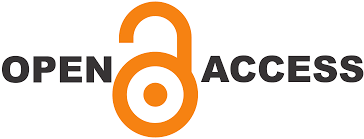- Focus and Scope
- Section Policies
- Peer Review Process
- Publication Frequency
- Open Access Policy
- Archiving
- Indexers and Directories
- San Francisco Declaration on Research Assessment
- Ethics and Good Practices of ANPAD Scientific Publication
- RECADM on Google Scholar
- Impact of RECADM on the Spell
Focus and Scope
The mission of the Revista Eletrônica de Ciência Administrativa (RECADM) is promoting scientific production in the area of Management and Organizations by functioning as an interdisciplinary space suitable for dissemination and discussion of theoretical and empirical work related to the dynamics of organizations and management practice.
Other types of contribution can be accepted, such as interviews, translations, forums and discussions, brief cases and theoretical essays, as long as the publishing proposals be submitted in advance by the Editorial Board of the Journal and deemed appropriate for editorial publication.
The target audience of the journal consists of researchers, profesors and students of management and organizations and of directors and related professionals from public, private and third sector organizations.
Section Policies
Submission
Editors- Luciano Rossoni
Peer Review Process
REVIEW PROCESS
RECADM uses the Double-Blind Review process.
1) The first part of the assessment is the responsibility of the Editorial Board and consists of checking the suitability of the article to the journal's editorial policy and its development according to the instructions for presentation and submission of papers. At this stage, the article may be rejected if it is found that does not fit the journal's editorial policy, does not meet the requirements set forth in the guidelines, has serious problems with wording or formatting, or does not contain enough scientific or technological merit.
2) The articles adopted in first stage of evaluation will be sent to two assessors registered for analysis and opinion in accordance with the areas of expertise and interest. If there is disagreement among the evaluators' judgments regarding the relevance of certain work, a third reviewer will be assigned to analyze the work.
3) The article review will be based on the appropriate form available on the system OJS. The evaluation result may be: a rejection of the paper for publication, its recommendation with reservations and unconditionally its recommendation.
4) The opinions expressed by the evaluators will be appreciated by the authors, considering: a general assessment of the article offered contributions to the improvement of the article, methodological recommendations, indications of complementary bibliography and suggestions for continuing or expanding the search.
5) The final decision of acceptance or refusal of work is reserved to the editor. Based on the evaluations, it will effect the communication of the decision (s) of author (s). Where there are caveats, the authors will have 15 days to one month to make the corrections and the editor will wait to send the final version of the article to issue a conclusive opinion. Once accepted the job, the author (s) (s) is (are) aware of the issue in which the article is published and the probable date of publication.
6) The Editorial Board of RECADM reserves the right to ask authors submitting their work to the Ethics Committee of their institution or to the Ethics Committee of FACECLA, if it considers this necessary.
ABOUT THE REVIEWERS
1) The RECADM holds space dedicated to register of researchers and scholars nationally and internationally, for undergraduate and postgraduate studies in Business Administration or related fields interested in playing the role of evaluators of the journal, which can be accessed HERE.
2) Applicants must create a username and password, and indicate their intention to participate in the review process of articles for the Journal. Must complete the biographical data with the last title, institutional affiliation, areas of expertise and academic experience. Once registered, the information provided will remain in the database RECADM and may be modified or updated by the candidate according to their interest.
3) All applications will be reviewed by the Editorial Board of RECADM based on: degree, academic experience and area of expertise / interest of the candidate, the level of involvement and participation in research projects and events in the area, the importance of quantitative and qualitative bibliographic production.
4) Candidates selected as evaluators of RECADM receive a notice requesting the acceptance of the condition evaluating and certifying the knowledge of rules and procedures of the Journal. Once given the accepted, the appraiser will make available for the analysis of one or more articles submitted to the journal without any economic compensation or consideration.
5) Assessors may refuse to consider one or more articles to the extent that they believe do not have the availability or knowledge required. For this, they should inform the refusal or unavailability as soon as possible.
6) The RECADM reserves the right to shut down the magazine that the assessors do not meet the stipulated deadlines for evaluation and / or evaluations of poor quality produce little or no relevance to the improvement of the papers and the construction of knowledge in Business Administration.
7) The appraiser who, for whatever reason, is unable or not interested in staying as RECADM assessor may at any time request the withdrawal of its registration database of the Journal, since repaid all assessment obligations contracted with the Journal.
8) The evaluators who express interest will be invited to compose the Editorial Board of RECADM and / or developing other projects of interest to the publication.
9) The RECADM maintain an updated register of assets evaluators, published in the magazine's website, and enable the evaluator to issue a certificate of participation as an evaluator of specific jobs.
REVIEW CRITERIA
1) The deadlines set for submission of assessments should always be respected. Although the magazine set a deadline for the submission of assessments, the ideal is that they are delivered as soon as possible. This allows authors to have more time to make the necessary corrections and gives more credence to the appraiser before the RECADM and before regular employees. The same is indicated for the notification of refusal of evaluation, the sooner informed of the unavailability of the examiner in analyzing the effect (s) work (s), the greater the likelihood of the Editorial Board find available reviewers and the more recent period for conduct the reviews.
2) Respect for the commitment and the ethics of the authors should always be maintained. Remember, the object of analysis is the work and received their merits and not its author or current theory to which he belongs. The evaluator must assume the position of counselor, make constructive comments, which have the improvement of the work is evaluated, the author's growth as a researcher and expanding knowledge in management.
3) The search for objectivity and impartiality in the assessments is essential. Although the Double-blind method contributes to impartiality, it is not infallible; falling, so the evaluators, the responsibility not to seek information about the author that might influence their evaluation and not the author provide information to identify them. To ensure the objectivity of the evaluations, it is necessary to be clear and specific in pointing out the weaknesses and problems identified in work and explicit suggestions for improvement or correction. Besides the difficulties, the indication of the overall contribution and strengths of the article, as well as recommending ways and possibilities for future expansion or continuation of research and enrich the work of the evaluator and directly influence the improvement of production quality in academic Administration.
4) The evaluation result may be: a rejection of the paper for publication, its recommendation with reservations and unconditionally its recommendation. These positions should be communicated only to the Editor RECADM; in any way the assessor should make or imply its recommendation to the author or rejection of a particular job. For any of the three possibilities evaluators should make explicit evidence for his position.
5) As a basic guide for the assessment of an item, you can use the following steps, check that:
- The subject of the article is relevant, whether the scope and objectives are well defined, if he presents a brief state of the art on the theme, clearly defines the concepts employed and create, test, or widen the existing theories in Management;
- The article presents a review of appropriate literature, cites the main work area, properly credits the ideas presented to its authors and has sufficient number of references to achieving the goals it has set itself;
- Methodological and statistical procedures used are sufficient and appropriate to the research brought, are consistently described and ensure internal and external validity of research;
- The proposed objectives were achieved in the article, if the results were sufficient to achieve the proposed objectives and to confrontation of the theoretical content with the results allow the author to reach the conclusions reached or extrapolate them;
- The paper contributes to the expansion of existing empirical or theoretical knowledge about the dynamics of organizations and the practice of management and if the subject interests the audience for the journal.
Publication Frequency
A RECADM tem periodicidade quadrimestral, publicadas no primeiro dia dos meses de janeiro, maio e setembro.
Open Access Policy
This journal offers immediate open access to its content, following the principle that providing open scientific knowledge to the public provides greater global democratization of knowledge.

Archiving
This journal uses the LOCKSS system to create a distributed file system between participating libraries and allows them to create permanent journal files for preservation and restoration.
In addition, RECADM is part of the Cariniana Digital Preservation Network, following its policies for the preservation of digital files.

Indexers and Directories
Indexers marked with (I):
Academic Journals Database; AcessoLivre; AGGI.ORG; ASEZA; Base; BiVir; BVB;
Cabell's Directory; CAPES/Qualis (I); CLASE; Contemporary ScienceAssociation; CrossRef;
DayangJournal; Diadorim; Dianet; Directory of Research Journals Indexing (I); DOAJ;
e-journals.org; EBSCO/Fonte Acadêmica; EZB;
Gale/Cengage Learning; GVK-GBV; Helpcome; Hispanic American Periodicals Index(HAPI);
IBICT/SEER; IndexCopernicus (I); Journals.Vaagi.org; KOBV;
Latindex (I); LivRe!; Max Plank; NKRC; OAKList; OAI PKP; OAI UIUC; Open Archives;
Periódicos.CAPES; Proquest; REDIB (I); ResearchGATE;
ScientificCommons; ScienceGate; Scirus; sEURch; SHERPA/RoMEO; SPELL (I); Subito; Sumários.org (I); SWB-BSZ;
Tulip UlrichswebTM (I); VUBIS; WorldCat/OAIster; WorldWideScience.org; ZDB OPAC.
San Francisco Declaration on Research Assessment
RECADM is a signatory to the San Francisco Declaration on Research Assessment.

Ethics and Good Practices of ANPAD Scientific Publication
RECADM follows the Good Practices of the Scientific Publication of ANPAD.




 e-ISSN: 1677-7387
e-ISSN: 1677-7387